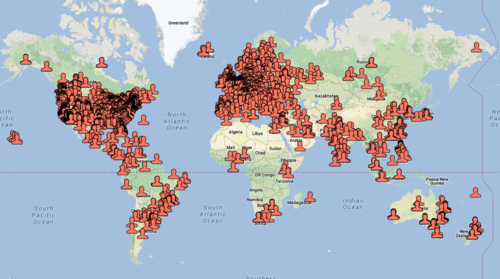In the past, I’ve tweeted out that Sprint.ly was looking to diversify our applicant pool and was actively hiring developers.
If you’ve been following, or engaging in, the conversation around diversity in technology and software development, you probably have a good idea of what the responses looked like. I don’t want to spend time covering the robust body of research that clearly demonstrates why diversity in the workplace is good for business as others have covered it many times in many ways much more eloquently than I could ever hope to.
But I do want to talk about this notion that you should always hire the very best developers and only the very best developers whenever you need to hire a developer. To sum up my opinion on this subject simply, this approach to hiring is akin to premature optimization:
At Sprintly, we believe that experience and background are just as important, if not more so, as programming skills, which is why we’re putting effort into creating an applicant pool that is as diverse as our customer base is.
Why? There are a few reasons, but I’m going to first start by showing you a map of all the fine people who have been kind enough to give Sprint.ly a shot.

I’m extremely proud of the fact that we’ve built a product that resonates with people around the globe. This map, more than anything else, has made it abundantly clear that, to be successful longterm, Sprintly needs to embrace diversity in the workplace. I’ve gone so far as to set a goal that Sprintly have one employee on every continent.
Why?
Because our customers deserve the very best service and product. Delivering fantastic customer service and designing a great product require a tremendous amount of empathy. Empathy requires context. Context requires experience. No matter how hard I try, as a middle class white male from the US, I’ll never have the context or experience to fully empathize with women or people who grew up in dramatically different cultures or have had to grow up on the receiving end of bigotry.
In addition to basic gender, cultural, and ethnic diversity I also strongly encourage companies that I advise to diversify both skill level and skill sets. One founder that I was talking with about recruiting said, “Huh, you have a much different approach to hiring than everyone else I talk to. It’s much more holistic.”
Early stage startups are notorious for requiring employees wear many hats. If you go all in on top 10 CS school graduates, you’re likely going to find your sales and marketing funnels are empty, basic user documentation and on-boarding is missing, and customer development is lacking. Very few early stage startups legitimately need to follow this course, but I see almost all of them attempting to. I’m not sure I can think of a more anti-lean approach to building a team.
What do early stage startups need? They need a diverse set of experiences, skills, and backgrounds to cover all facets of product development at once with almost no resources. Approaching the complicated, multi-faceted problems of early stage startups with a homogenous team simply doesn’t seem like a very sound approach to us at Sprint.ly.
If you’re interested in employment opportunities at Sprint.ly, please do email me!

